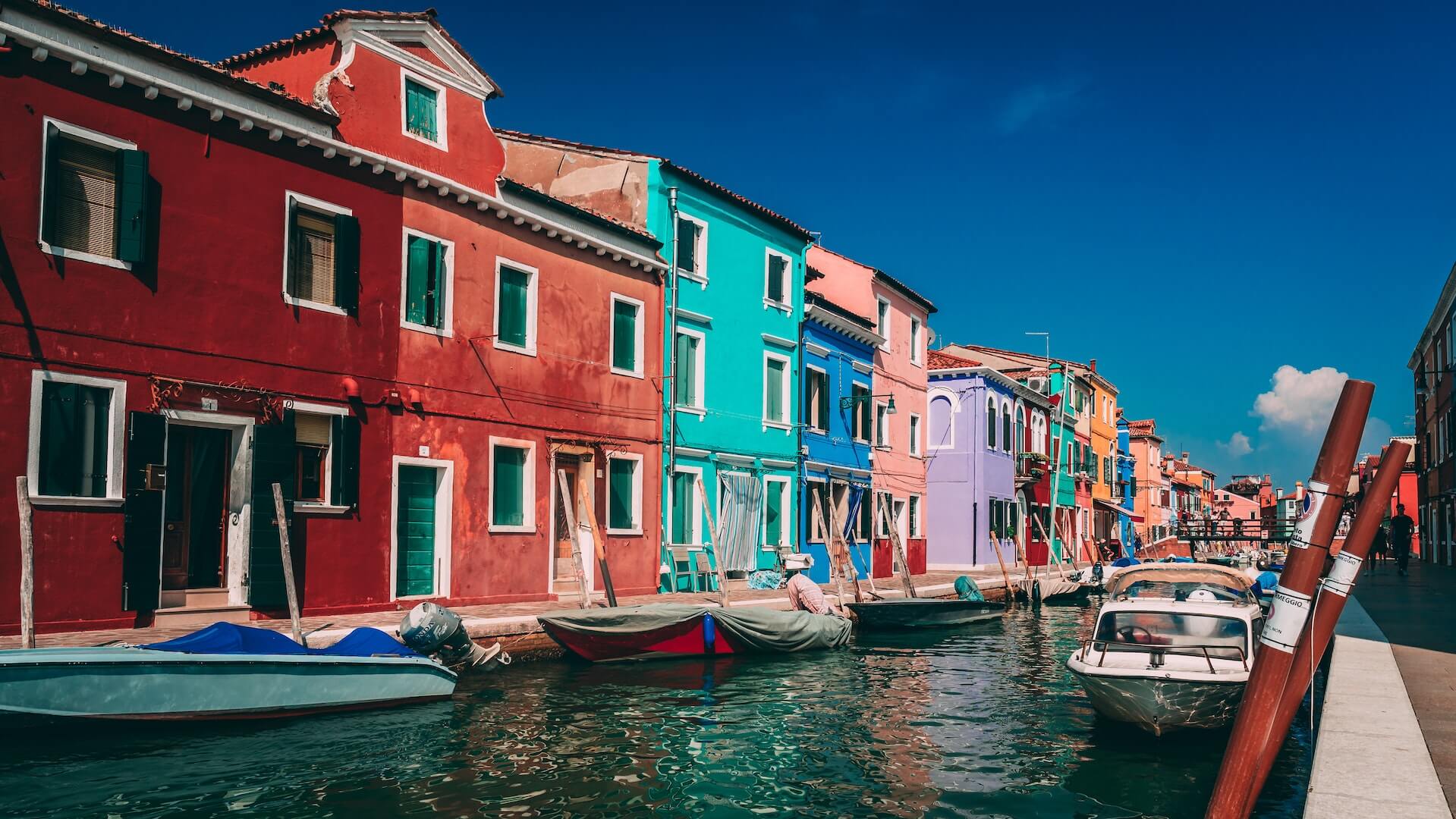Ciao a tutti! Are you planning your next vacation to Italy but feeling intimidated by the language barrier? Fear not; incorporating Italian language learning into your travel plans can be an enriching and fun experience.
As an expert in Italian language acquisition, I am here to share some tips on how to make the most out of your trip while improving your Italian skills.
There is no better way to learn a new language than immersing yourself in its culture and environment. While visiting Italy, take advantage of every opportunity to practice speaking with locals, whether ordering food at a restaurant or conversing with friendly Italians.
By using simple phrases like ‘Buongiorno’ (good morning) or ‘Grazie’ (thank you), you’ll quickly find that many Italians are happy to help you improve your Italian proficiency.
So pack your bags, prepare for an adventure, and let me guide you through the exciting world of Italian language learning during travel!
Table of Contents
Planning For Language Learning Opportunities
’Benvenuti! Welcome to the world of Italian language learning. Whether you are an avid traveler or a beginner in the Italian language, incorporating language learning into your travel plans is a great way to immerse yourself in the culture and make meaningful connections with locals.
This section will discuss how to plan for language learning opportunities during your travels. Before embarking on your trip, it is important to research local language schools or tutors that offer lessons catered to travelers. This can provide a structured approach to learning while allowing for scheduling flexibility. Additionally, consider utilizing online resources such as apps and podcasts to supplement your in-person lessons. By planning and setting realistic goals for yourself, you can ensure that you make progress in your language skills throughout your journey.
As you plan for your Italian language journey, don’t forget to embrace the whole immersion experience by engaging with the local culture. From trying authentic cuisine at traditional trattorias to attending cultural events like opera performances or art exhibitions, there are endless opportunities to practice speaking and listening outside formal lessons. The more you engage with native speakers and integrate yourself into everyday life, the faster you will improve your language understanding. So pack your bags and prepare for an adventure of linguistic discovery!’
Immerse Yourself In Italian Culture
As discussed in the previous section, planning ahead is critical to maximizing your language learning opportunities while traveling. Now that you have a solid foundation of resources at your disposal, it’s time to immerse yourself in Italian culture and put those skills to use.
One of the best ways to learn any language is through authentic cultural experiences. Italy has so much to offer regarding food, art, music, and history — all of which can help you better understand the language and its nuances.
Here are three ideas for immersing yourself in Italian culture:
- Attend local festivals or celebrations: Whether it’s Carnevale in Venice or La Festa di San Giovanni Battista in Florence, participating in traditional events is an excellent way to experience Italian culture firsthand.
- Take a cooking class: Food plays such an integral role in Italian culture, and taking a cooking class will teach you how to make delicious dishes and expose you to new vocabulary related to ingredients and techniques.
- Visit museums and historical sites: Italy is home to some of the world’s most iconic works of art and architecture. Visiting places like the Uffizi Gallery or Colosseum provides insight into Italy’s rich history and offers plenty of opportunities for practicing your language skills with locals.
By engaging with Italy’s vibrant culture, you can practice your language skills naturally without feeling like you’re studying. Plus, these experiences will create lasting memories beyond mastering grammar rules.
So why wait? Start exploring everything that this fantastic country has to offer!
As you continue your journey towards fluency, don’t forget about one crucial aspect — speaking with locals! Our next section’ll dive into strategies for communicating effectively with native speakers and building confidence as you navigate real-life situations.
Practice Speaking With Locals
Planning for Conversation:
Before you travel, it’s essential to think about the conversations you want to have and how you can best prepare for them. Knowing a few key phrases in Italian can help you get a conversation started, and practicing them ahead of time will give you the confidence to speak up.
Initiating Conversation:
When you’re ready to talk to a local, don’t hesitate to plunge! Starting with a smile and a friendly greeting like ‘ciao!’ will help break the ice and show your enthusiasm for the language.
Developing Conversation:
Once you’ve made a connection, it’s time to practice your Italian! Ask questions like ‘come si chiama?’ and ‘dove vive?’ to test your conversational skills. As you get more comfortable with the language, you can share more complex thoughts and ideas.
Planning For Conversation
As an expert in Italian language learning, planning for conversation when traveling to Italy is crucial. Engaging with locals is a fantastic way to practice your skills and immerse yourself in the culture.
Start by researching popular spots where you can find Italians socializing, such as cafes, restaurants, or markets. When approaching someone, please introduce yourself and explain that you are trying to learn their language.
Don’t be afraid of making mistakes; natives will appreciate your effort and may help correct your grammar or pronunciation. Do not hesitate to ask questions about their customs, traditions, and lifestyle — this demonstrates a genuine interest in their culture while simultaneously allowing you to improve your comprehension abilities.
By planning for the conversation ahead of time, you’ll be able to make the most out of your travel experience and take home invaluable knowledge about the country’s rich history and vibrant community!
Initiating Conversation
Now that we have covered the importance of planning for conversation let’s dive into how to initiate it.
As an Italian language learning expert, I understand that starting a conversation with locals may seem daunting at first, but it is essential to improve your speaking skills and gain insight into their culture.
When approaching someone, remember to smile and introduce yourself politely. Italians are known for being warm and friendly, so be relaxed about making mistakes or stumbling on words.
Start by asking simple questions such as ‘Come stai?’ (How are you?) or ‘Posso chiederti una cosa?’ (Can I ask you something?). This will help break the ice and show interest in getting to know them.
You can also complement their clothing or accessories, leading to an exciting discussion about fashion trends and styles!
Always maintain eye contact while conversing as it shows respect and attentiveness toward the person you’re talking with.
In conclusion, initiating a conversation with locals might be challenging initially; however, once you get started, it becomes easier. So don’t hesitate to practice your Italian skills whenever possible during your travels!
Developing Conversation
Now that you have initiated a conversation with locals, it is time to focus on developing that conversation.
As an Italian language learning expert, I understand that meaningful interactions can be daunting, especially when speaking with someone who may not share your native language fluency. However, practicing and honing your skills will help build confidence and create a more enjoyable experience for both parties.
One way to develop conversations is by actively listening to what the other person says and responding accordingly. This shows that you are interested in their thoughts and ideas while allowing them to feel heard and valued.
Another technique uses open-ended questions such as ‘Che cosa ti piace fare nel tuo tempo libero?’ (What do you like to do in your free time?). These inquiries allow for more extended answers, leading to deeper discussions about interests or hobbies.
It’s also essential to remember cultural differences when conversing with locals. Be mindful of topics considered taboo or offensive in their culture. By doing so, you’ll show respect toward their values and beliefs.
In conclusion, developing conversations with locals takes practice, patience, and attentiveness; however, it will ultimately lead to more profound connections and understanding between cultures. Remember these tips during your travels and enjoy immersing yourself in new experiences!
Take Advantage Of Language Learning Resources
Learning a new language can be both exciting and challenging. As an Italian language learning expert, I understand the importance of utilizing resources to enhance your language skills while traveling abroad. Many tools are available that cater specifically to travelers looking to learn or improve their Italian.
One helpful tool is language learning apps such as Duolingo or Babbel. These apps provide interactive lessons and activities that allow you to practice speaking, listening, reading, and writing in Italian at your own pace. Additionally, many travel guidebooks include sections on basic Italian phrases and grammar rules that can be useful when navigating unfamiliar territory. However, the most effective way to learn any language is through immersion — practicing with native speakers and experiencing the culture firsthand. Below is a table outlining some ways you can incorporate language learning into your tourist activities:
| Tourist Activity | Language Learning Opportunity |
|---|---|
| Ordering food at a restaurant | Practice ordering in Italian using key phrases like “vorrei” (I would like) or “per favore” (please). |
| Visiting local markets | Strike up conversations with vendors about their products or ask for recommendations in Italian. |
| Taking guided tours | Request tours led by knowledgeable guides who speak both English and Italian. Take notes on interesting vocabulary words throughout the tour. |
| Attending cultural events | Look for opportunities to attend concerts or festivals where you can listen to live music or watch performances entirely in Italian. |
| Meeting locals | Attend meetups or join groups made up of people interested in exchanging languages — this provides a great opportunity to practice speaking with native Italians. |
By incorporating these types of immersive experiences into your travels, you will improve your ability to speak Italian and gain valuable insights into the local culture and customs.
Incorporating Language Learning Into Tourist Activities.
As an Italian language learning expert, I strongly recommend incorporating language learning into tourist activities. This will enhance your travel experience and make it more meaningful and enjoyable.
One way to do this is by participating in local tours led by native speakers. This provides an excellent opportunity to practice listening and speaking skills while exploring the city’s landmarks and historical sites. You can learn new vocabulary related to culture, history, food, and much more as you engage with locals passionate about sharing their knowledge of the city.
Additionally, attending cultural events such as concerts, exhibitions, or festivals provide excellent opportunities to immerse yourself in the language while experiencing authentic Italian culture.
Another fun activity that combines tourism with language learning is joining cooking classes or wine tastings with local chefs and sommeliers. Not only will you get to try some unique dishes and wines, but you’ll also have a chance to learn essential culinary terms whilst practicing your conversational skills with other participants.
By incorporating these simple yet effective strategies into your travel plans, you’ll be able to improve your language proficiency whilst enjoying all that Italy has to offer!
Frequently Asked Questions
What Is The Best Way To Find Language Exchange Partners In Italy?
Looking for language exchange partners in Italy? Look no further!
The best way to find them is by immersing yourself in the local culture. You can do this by attending events, joining clubs or groups related to your interests, and even hanging out at cafes or bars that locals frequent. Networking with other travelers who are also learning Italian can also be helpful.
Don’t be afraid to start conversations and practice your language skills — Italians are known for their friendliness and willingness to help others learn their beautiful language. By making an effort to connect with native speakers, you will not only improve your language proficiency but also gain a deeper understanding of Italian culture and customs.
So why wait? Start exploring all that Italy offers while improving your language skills today!
Are There Any Specific Cultural Events Or Festivals That Are Particularly Helpful For Language Learning?
Attending specific cultural events and festivals can be particularly helpful if you’re looking to improve your Italian language skills while immersing yourself in the culture.
Not only do these events provide a fun and interactive way to learn new phrases and vocabulary, but they also offer an opportunity to connect with locals who are passionate about their traditions.
For example, Carnevale in Venice is a great place to practice speaking Italian with friendly locals while enjoying colorful parades and festivities.
The Festival of Sanremo offers a chance to listen to Italian music and lyrics while practicing pronunciation and grammar.
By participating in these events, you’ll enhance your language skills and gain a deeper understanding of Italy’s rich culture.
How Can I Overcome My Fear Of Speaking Italian With Locals?
Ah, the fear of speaking with locals! It’s a common problem for people trying to learn a new language. But let me ask you: what’s the worst that could happen?
Maybe they won’t understand you at first — but isn’t that better than not trying at all? The truth is, the more you practice talking with native speakers, the faster your Italian skills will improve.
So start small: order food in Italian at a restaurant or talk with someone at a cafe. And remember, it’s okay to make mistakes — that’s how we learn.
Italians are generally friendly and welcoming, so don’t be afraid to speak up and try out those new phrases!
What Are Some Effective Online Resources For Learning Italian Before My Trip?
Looking for adequate online resources to learn Italian before your trip? You’re in luck! Many options are available that cater to different learning styles and levels.
From interactive apps like Duolingo and Babbel to podcasts such as Coffee Break Italian, there’s something for everyone. Additionally, websites like ItaliaRail offer courses designed for travelers seeking to improve their language skills while exploring Italy.
Don’t be afraid to immerse yourself in the language — practicing with native speakers or watching Italian films can greatly enhance your learning experience. With dedication and consistency, you’ll be speaking Italian in no time!
Are There Any Regions Or Cities In Italy That Are Particularly Language Learner-Friendly?
When learning Italian, immersing oneself in the language and culture is critical. Luckily, many regions and cities throughout Italy offer a friendly atmosphere for language learners.
Take Florence, for instance, where you can enroll in language classes at the prestigious Università degli Studi di Firenze or practice your skills while admiring Renaissance art at the Uffizi Gallery.
Or head to Bologna, known as La Dotta (The Learned), where you can join one of the city’s many language exchange groups and chat with locals over a plate of tagliatelle al ragù.
Other great options include Rome, Venice, and Siena — all offering unique experiences for those looking to improve their Italian proficiency. So why not make your next trip to Italy a true linguistic adventure?
Conclusion
In conclusion, incorporating Italian language learning into your travel plans can significantly enhance your experience in Italy.
Finding language exchange partners through websites and apps such as Tandem or HelloTalk is a great way to practice speaking with native speakers.
Attending cultural events and festivals such as the Palio di Siena or Carnivale in Venice allows for immersive experiences and opportunities to interact with locals.
If you are afraid of making mistakes when speaking Italian, remember that making mistakes is a natural part of the learning process, and locals will appreciate your effort to communicate with them.
Online resources such as Duolingo, Babbel, and Memrise offer practical ways to learn basic vocabulary and grammar before your trip.
As an expert in Italian language learning, I recommend visiting regions such as Tuscany or Umbria, where local dialects are easier to understand than in other parts of Italy.
Cities like Florence or Rome also offer many language schools for intensive immersion courses.
Remember that learning a new language takes time and persistence, but by incorporating it into your travels, you will gain valuable skills and unforgettable experiences.
As the Italian proverb says, ‘Chi va piano va sano e lontano’ — ‘Slowly goes healthy and far.’




